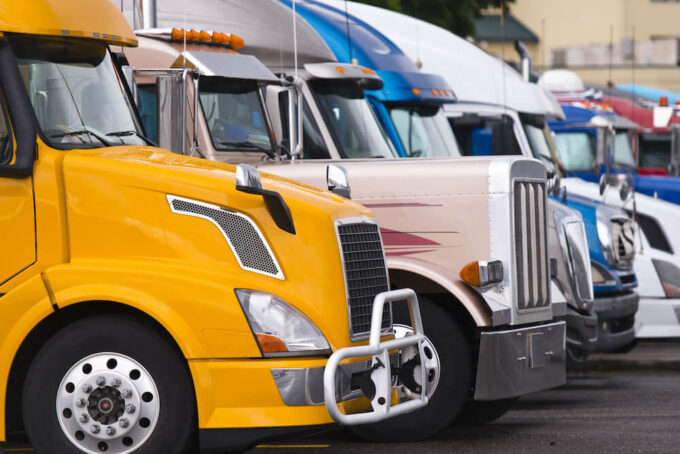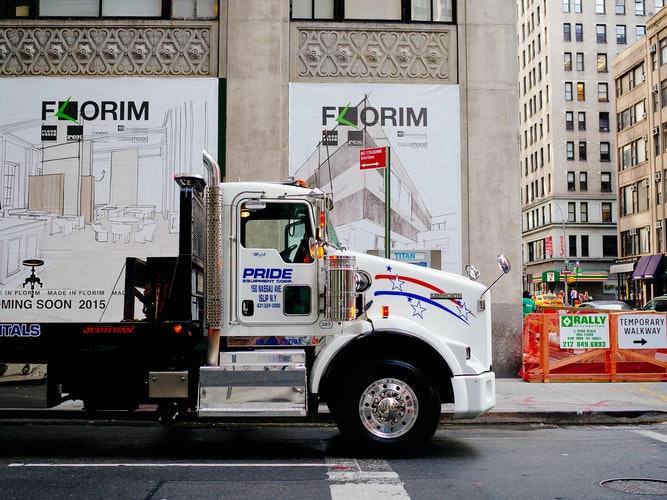Truck insurance is a challenging expense for an independent or a small fleet owner. Insuring a trucking business is definitely not cheap. You might draw a disadvantage when it comes to paying your insurance bill, or maybe you’re living in fear of finding out how much insuring your business might cost.
The trucking business is risky – the roads are perilous, and there are a lot of things that could go wrong—a good reason to purchase the right coverage and to make sure that your company is properly insured. However, nobody likes to pay a fortune for it. So, we’ve covered some tips that can help you save money on your commercial truck insurance.
1. Hire Experienced Drivers

Insurance companies consider many factors in determining your commercial trucking premiums. However, knowing what insurance providers are looking for can help you get reliable coverage at an affordable price. One of the factors that might affect your insurance rate is your drivers- particularly how they operate your trucks.
Insurers have a keen interest in years of driving experience when determining truck insurance premiums. Why? Because more experienced drivers can better operate during harsh weather and other challenging working conditions. Insurers perceive your business as relatively less dangerous. As such, they will be willing to reduce your insurance rates. Ideally, your employees should have no less than two years of CDL experience.
Another factor that might influence your premiums is your employee’s driving records. Those with a history of traffic violations and accidents present a greater risk compared to their counterparts. The bad news? Insurance companies like commercial trucking insurance in California USA do take notice of this trend. According to Insuranks, hiring experienced drivers with little to no traffic violations or accidents on their records might work wonders for your commercial truck insurance premium.
2. Shop for Cheap Bobtail Insurance Quotes

Shopping for cheap bobtail insurance may be challenging because it’s a specialized trucking product, and most insurers don’t write it. Why do you need one? Most truck operators are covered by the motor carrier’s primary liability coverage while hauling loads for them. However, you might not be covered by the same policy between loads. That’s where bobtail insurance intervenes.
The liability usually covers:
- the liability insurance with a limit of $1,000,000,
- Uninsured driver and underinsured driver policy
- #35-$60 monthly premium- cheaper than most policies
3. Invest in Newer Vehicles

The value, age, and condition of your vehicles greatly influence your commercial trucking insurance premiums. Routine maintenance and installation of new equipment on trucks also impact the premium rate decision. Experts recommend sticking to new vehicles, ideally ten years or newer.
We know, investing in newer models of the truck can be quite expensive, however, this can help your business be efficient in terms of fuel usage, pollution control, and above all, safety. These are all decisive for your insurer so that they take fewer risks in covering for your damages should they happen. In most cases, lesser risks for your insurers may mean a lower premium for you.
4. Remap Your Trucking Routes

The routes on which your commercial trucks operate have a great impact on your premiums. Believe it or not, the frequency of extreme weather and even population density can impact the risk level of a particular route.
It’s recommended to avoid areas susceptible to bad weather and high population areas when mapping on your route. Note that your trucks’ age, condition, and value may also impact your commercial insurance premiums. We advise you to stick to new trucks, ideally ten years to newer. If possible, trucks should also have modern equipment, such as accident-avoidance software.
Reducing your commercial truck insurance premiums may be challenging. While the methods listed above might not reduce a great deal on your premium, together, they can reduce your premiums considerably.
5. Invest in Safety and Service Protocols

Insurers pay out the bulk of truck accident claims. Through years of investigations, they’ve learned safety protocols and proper maintenance go a long way to minimize the severity of the accident and avoid certain accident types altogether. Because of this, insurers will also go out of their way to reward and ensure fleets who take a proactive approach with routine maintenance and safety.
Routine maintenance
While accidents just can be dodged, routine maintenance will help ensure your fleet is prepared to react in emergency situations. Creating a formal service schedule for each truck in your fleet is important in avoiding or reducing accidents.
As such, a routine maintenance program should include checking and replacing when recommended:
- Faulty Tires
- Lights
- Fluids
- Fuel/DEF tanks
- Wires and lines
- Gauges and dials
- Windshield wipers
Well, that’s just an example of items you should include in your routine maintenance program. Proper maintenance will also help avoid negligence claims which often lead to higher settlement amounts. However, enough information about your routine maintenance program and copies of your service schedules to your insurance company can potentially reduce your premiums.
Technology
The latest technological advancements have made it possible for small business owners to defend themselves in the event of claims or reduce insurance premiums.
Telematics: This provides fleet managers with real-time driving, which can be used to improve driving habits and monitor the potential wear and tear of the rigs. Many insurance agencies offer upfront discounts for truckers who install these technologies on their rigs.
Cameras: Fundamental in states across the pond, in-cab cameras are gaining popularity in the U.S as well. Cameras capture video evidence to help trucking businesses in defense of accident claims.
From a coverage point of view, make your insurer aware of any technology you install on your vehicles, so they are properly insured. Then ask if there are any discounts available.
Pay Full Premium Amount in Advance
After all, why not? If you can afford to, then pay your entire insurance premium amount in advance and upfront.
All you need to do is to write a single check to your insurer for the entire amount you owe yearly. All things considered, you will be saving up to 10 percent or even 20 percent by not paying monthly.










